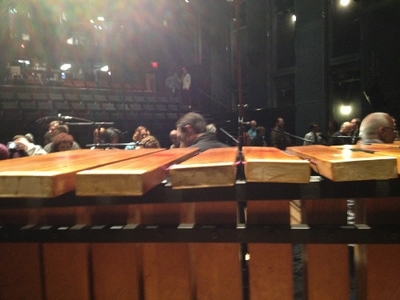
Modern composer Harry Partch died in 1974; since then, it's been up to a few extremists such as this dozen-plus-member ensemble called Partch to keep his works alive. It takes dedication: The devotees must understand H.P.'s unique musical language, team up with artisans who can re-create the master's self-designed instruments, and learn how to play the things -- and it ain't like you can sign up at just any music school for that.
In his whimsically serious 1950s recorded introductions, the composer described this music as a crime for which he could be found artistically "guilty," with "grand flourishes that lead to nothing." So I started to think of Partch's nominal themes as misdirection from what I was actually hearing: The wild words of Rimbaud were sung by Timur Bekbosunov with parodic stiffness; the primal themes of Oedipus came off as stoned disorientation; the mythic meditations on birth and death arrived with a splatter of silliness.
Even the event's biggest media hook, the restoration of the 847-pound Marimba Eroica (a year in the crafting), turned out to be less than met the ear. Only two of the instrument's four huge bars/resonators could be consciously heard at all; despite the hype, I couldn't feel their vibrations either, even when I banged the plates myself afterward.
But everything about Partch's music undermines literalness. He was a sound-dance-visuals guy who didn't want us to focus on any one vibration, rhythm or sight. Tonight's music moved around all the time, the emphasis shifting from slides of dense microtonal guitar chords (prime mover John Schneider) to bright dings on clear plastic bowls resembling cutdown Sparkletts bottles (Nick Perry) to celestially alien kithara strings (Alison Bjorkedahl) to spooky microtonal organ (David Johnson) to several different-sized marimbas (Yumi Lee, T.J. Troy, nymph-maned barefoot goddess Erin Barnes, the exciting main soloist). And a lot more.
Chinese, African and Indonesian flavors got recontextualized to avoid traditional authenticity, to deny ordinary notions of development and to derail too much unity of direction; even Partch's referenced unborn heartbeat, we know, isn't either a metronome or an individual performance. No, we humans breathe/wheeze, blunder into things, get distracted, and so does Partch's music, although in a rigorously conceived and balanced way. His fake randomness helps us imagine that life is a symphony waiting to be heard.
PHOTOS BY FUZZY BARK.
